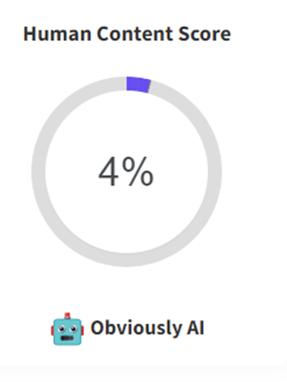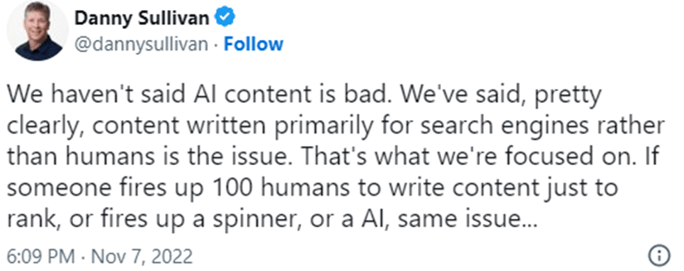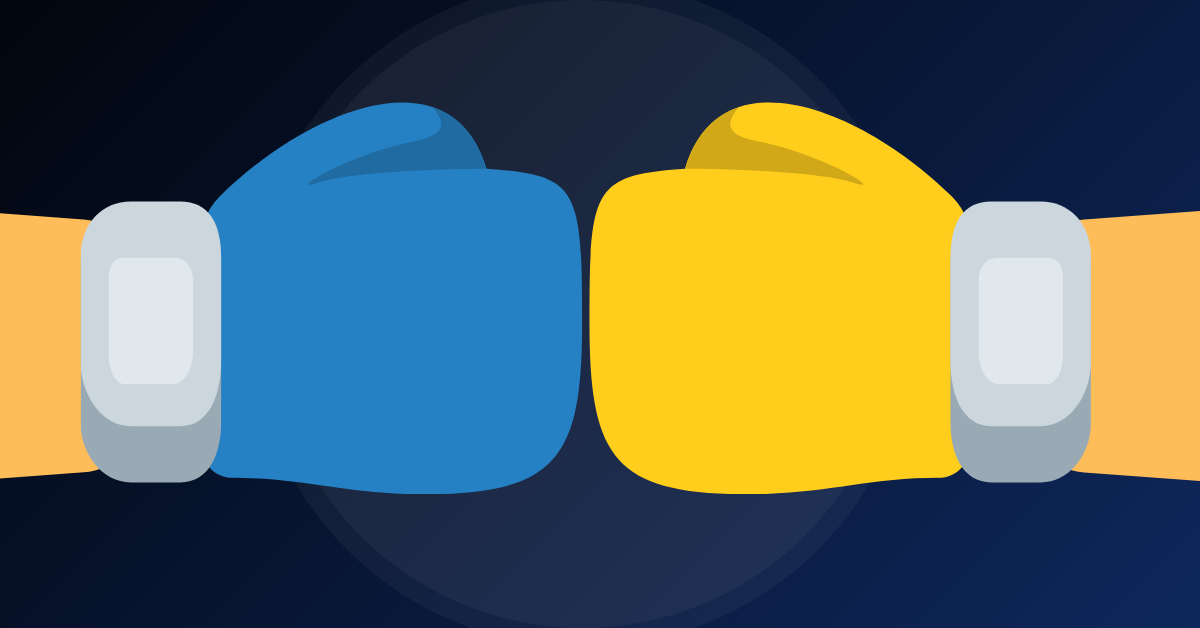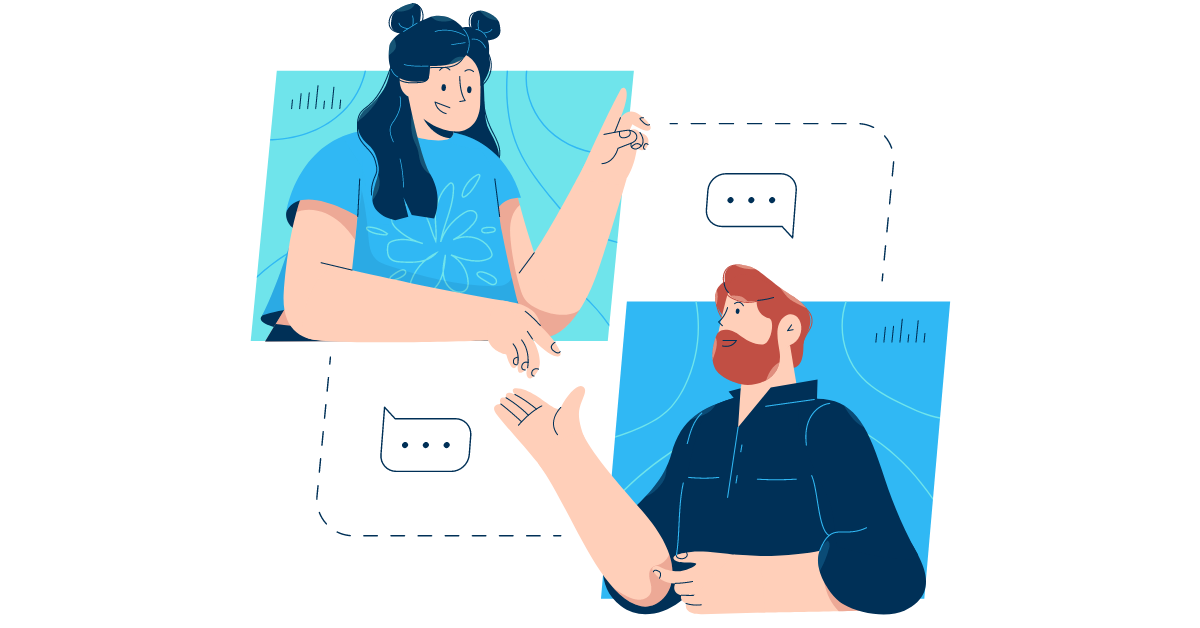How To Maintain Creativity In An Era Of AI Content Generation
When it comes to leveraging AI, content marketers are generally divided into two camps: “This is really clever” and “This is too clever for its own good”.
Come on, now… We’ve all seen the memes (and if you haven’t, I’ll send you a few).
Whether it’s Shelley Duvall hiding from Jack Nicholson in a still from The Shining - or just a jolly ol’ gravestone with COPYWRITERS etched across the front - it’s certainly the season for niche marketing humour about how AI content creation is coming after more livelihoods than Thatcherism.
Let’s be real, though. This is digital marketing. It’s always moved at one heck of a pace – It barely existed until the late 90s and I doubt you’ve quizzed Ask Jeeves in quite some time.
Can we really be unnerved by changes in a technology-based industry that’s so unforgivingly trend-based? It’s already sauntered from Mad Men to Emily in Paris… and now it’s just moving on again, right?
We already know that AI can whack out a very readable piece of content in minutes.
Ask the right questions and Chat GPT can crank out a decent blog with SEO credibility in ten. Twenty if you want to give it a bit of spit and polish afterwards.
So, what’s next for the wordsmiths among us?
After all, even Picasso said that ‘art is the elimination of the unnecessary’. Are creative copywriters even needed now? And if they are… for how much longer?
Spoiler: I use ChatGPT. I’m also a copywriter.
I think we’ll both be sticking around.
But we have to work together.
Feeling unnerved by AI doesn’t make you a content marketing luddite.
After all, anyone who became a marketer pre-2020 is likely to be suffering from an acute case of whiplash.
Hybrid working, commercial reinventions, GA4… It’s been all-change. And now you’re expected to change up your creative process, or even surrender it completely? Not to a savvy new hire, but a robot who works for 0% of your salary?
It’s… a lot. Under these conditions, I can’t blame anyone for wanting to protect their creative process.
Does this make you change-adverse? Not necessarily.
What’s critical is how you respond to the ebb and flow. AI content creation is already making a huge impact, so ignoring it won’t turn the tide.
Your strongest defence is to embrace AI on your own terms, and – by doing so in the right way – welcome new possibilities for your creative content.
What is ChatGPT and how can it underpin the creative process?
In case you’ve been living under a rock…
ChatGPT is an AI-powered language model developed by OpenAI, designed to generate human-like text responses to a given prompt. It uses a transformer-based architecture and has been trained on a massive corpus of text data.
It wrote that whole paragraph, in fact. I just copied it straight into this blog.
So, ChatGPT… How do you work?
ChatGPT uses a deep learning-based approach called Transformer Architecture. It takes a given prompt as input, processes the input text through the model's layers, and generates a response based on the patterns and relationships it learned from the training data. The model has been trained on a large corpus of text data and can generate responses that are coherent and relevant to the given prompt. The quality of the generated responses is determined by the input prompt, the model's training data, and its architecture.
Pretty cool, huh?
And – for the cynics among us (I know because I am one), I swung those paragraphs through a plagiarism and AI detector to see if it threw up any red flags.
100% unique! Well, that’s pretty good!
But hang on a minute…

Welp… The AI Content Detector from Content at Scale has caught the robot red-handed.
For transparency, this was the second, longer paragraph (the first had a 94% score, so not bad at all).
If creative content is original, does it really matter if it’s detected as having an AI author?
If the reader is getting the right information and it’s not plagiarism, do we need to worry about it?
The answer is… ‘kind of’. But only in the same way that the keyword stuffing of yore caused the same issue… and that was definitely a human problem.
To quote Danny Sullivan, Public Liaison for Search at Google…

This came after the October Spam Update, when Google appeared to slash the authority of AI-generated content. In short… yes, it may have been penalised, but not because AI is the enemy. It’s just another example of content that was pumped out to entertain search rankings, not designed to be human and helpful.
Google has been cracking down on spammy, low-quality content for years. The focus on intent is not new.
Using AI-generated content should be a layered, collaborative process that enhances your creative copy.
If you’re using ChatGPT or Jasper or any other content-generating software, you’re going to fall short if that content is bashed out to appease SERPs only. But if you’re a marketer, you should already know that it’s a poor tactic. AI is not going to bail you out.
At present, AI tools are very good at creating very average copy. Ultimately, it can write better content than somebody who doesn’t class copywriting as their A-game.
If you’re an experienced copywriter, you’ll read what AI produces, and… your eye will probably twitch a little. You’ll know that you could’ve written it better – but hey, it saved you a lot of research time and the structure of the text is pretty good.
So, this is your opportunity to collaborate. AI needs your creativity and skill to take it up a notch, and craft something your reader will truly enjoy.
And if you’re a copywriter who doesn’t care about the reader experience… Well, you’re probably the copywriter that AI could feasibly usurp.
This is how we maintain creativity in an era of AI content. We take the ‘acceptable’ and make it ‘astounding’. We use AI to buy us more time to do what we love – actually being creative.
AI opens doors for people who may have otherwise struggled to express their excellent ideas.
There are lots of brilliant marketers who aren’t copywriters. There’s lots of highly intelligent people who aren’t writers, full stop.
There’s also a lot of copywriters who are brilliant at making you think they’re smart.
This is the power of language. Often, those who can command it have a greater advantage than those who cannot.
If we all had a little help to articulate our ideas, we could bridge the gap between the great communicators and the wonderfully smart thinkers who are held back by their written skills.
This is a somewhat underrated benefit of AI. Imagine the ideas we could unlock if written communication became less of a barrier? Tools like QuillBot could be the key.
Five Tips for Creative Copywriting With AI
Ready to take content from average to astounding? AI could be a cornerstone – but it’s all about how you use it, of course.
Here’s a few tips to get you started…
- Conserve your creative energy. Whether its quick-fire definitions or a punchy list of benefits, leverage AI to produce the faffy bits of copy that ‘are what they are’ and don’t need much creative juice.
- Use AI to build the framework of your content. It’s the first draft, the blueprint, the floorplan. Use the time you saved on the research process to layer some copy that provides flow and is genuinely enjoyable to read.
- Ask the right questions. Plan what the sub-headers of your content would be and start there, as informed (at least in part) by your keyword research. These can help to form your AI prompts – and there’s a handy collection of examples here.
- Fact check. Say no more.
- Run your work through a plagiarism and AI detector. If you’ve used AI as a blueprint and your brain as the main event, you should pass with flying colours.
No matter how you feel about AI… Don’t hide from it.
It’s fine to be critical. Progress isn’t linear and agreeing doggedly with new ideas isn’t always conducive to success. There are many, historic examples of innovations that did not stand the test of time.
However, AI has – in a relatively short space of time - proven to evolve from its shortcomings. We need to learn and adapt alongside it… and the earlier you start, the sooner you’ll be using it to your personal advantage.
Do you think AI could’ve written this blog? Drop us a line and let us know…




